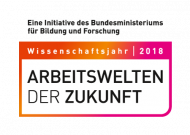Kurzthese
Beschreibung
Platforms bring together clients (e.g., consumers) with workers in specific domains. Platform-mediated work thrives on using the Internet to mobilize workers and deploying algorithms to supervise, control, and manage them (i.e., algorithmic management). Typically, the relationship between platforms and workers is market-based: rather hiring them as workers, they are flexible, self-employed freelancers. In this session, we assess the state and the future of labor relations by shedding light on following questions: How do workers operate in environments where AI govern and enforce platform’s policies? How do human workers respond? To give the human worker a voice, we further ask whether and how platforms enable workers to participate and improve their autonomy over work, influence how work-processes are organized or even shape a platform's strategy?
Lior Zalmanson from the University of Haifa will present the insights from a recent study on Uber (conducted with Mareike Möhlmann & Ola Henfridsson of Warwick University). In this study, they followed drivers in New York and London and found a wide array of methods drivers use to regain the control and exercise their agency in the face of algorithmic Management. Among those are acts of resistance, switch to alternatives, and even gaming and tricking the system to get back their sense of autonomy. It shows that even in the face of computerized control, workers will attempt to subvert the technology to reclaim their humanity.
Subsequently, Dr. Thomas Gegenhuber (Leuphana University Lüneburg) will discuss how to give workers voice in platform-mediated work. In his talk, he draws on the results of a study funded by the Hans-Böckler-Foundation (conducted with Markus Ellmer & Claudia Scheba), which explored whether and how six german-based crowdsourcing platforms implement voluntary participation instruments for crowdworkers. The study found that most platforms emphasize informing (e.g., blog) and reporting issues (e.g., chatbox). Some platforms provide the opportunity to discuss issues in a forum or message board; voting is barely relevant. This kind of participation empowers workers to some extent to increase their autonomy, yet, workers have little say in how work is organized, let alone, shaping the overall direction of the platform. Based on these findings, Thomas provides an overview of best-practice participation examples and outlines future directions.


